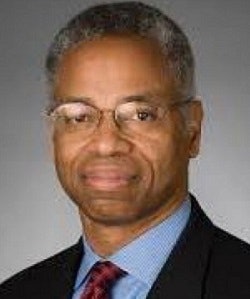The National Basketball Association received an overall grade of “A” in the 2019 Racial and Gender Report Card just issued by The Institute for Diversity and Ethics in Sport.
According to The Institute for Diversity and Ethics in Sport (TIDES) report card issued on Tuesday, the National Basketball Association (NBA) earned an overall “A+” for racial hiring and a “B” for gender hiring, putting the league far above all other men’s professional sports leagues.
Using data from the 2018-19 season, TIDES analyzed racial breakdowns of players and coaches. The report card also includes examination of the racial and gender breakdown of management at various levels in the NBA League Office as well as within the 30 NBA teams. The racial hiring grade at the NBA League Office is “A+” while the grade for gender hiring is “B+”.
The data clearly indicates that racial hiring outpaces gender hiring, particularly at the team level. The racial hiring grade for NBA team vice presidents and above is “a B+” and the gender hiring grade for similar positions is “D+”. The racial hiring grade for NBA team management is “A+”, whereas the gender hiring grade is a “C”.
“The data shows significant hires during the year and it shows individual places where important things have happened, like with the Dallas Mavericks where Cynt Marshall [an African-American woman] became the team CEO,” said Dr. Richard Lapchick, director of TIDES and primary author of the report card.
 Dr. Richard Lapchick
Dr. Richard Lapchick“In spite of the NBA being in a leadership position on gender hiring practices—and this is my area of concern across all the leagues—we continue to see declining numbers for gender hiring,” he added. “The NBA has had four consecutive years of minor decreases in the overall gender hiring practices grade and that is something we note very carefully and pay attention to.”
NBA Commissioner Adam Silver has called for more gender diversity among NBA referees and coaches. Lapchick said the only way to change the numbers is for teams to make sure there is a diverse pool of candidates for every significant hire. This includes the senior-most positions, such as team president and general manager. There are seven women serving as either team president or CEO, which is more than all other men’s professional sports leagues combined, but it is still a low percentage in terms of the NBA’s 30 teams.
Dr. Tomika L. Ferguson, an assistant professor in the Department of Educational Leadership in the School of Education at Virginia Commonwealth University, said TIDES report cards have alerted her to the trends in professional sports. She works with student-athletes who aspire to careers in professional sports, such as coaching, player development and marketing. Ferguson, herself a former collegiate athlete, is concerned that there are opportunities in sports management roles.
“They ask, ‘Is there a pathway for my career to continuously be involved in sports?’” she said. “Having knowledge about what is happening professionally enhances how we as administration and faculty members support whatever aspirations and passions the students have.”
Ferguson said TIDES report cards allow her to see the strides that have been made across race and gender lines, and it gives her insight into where improvements need to be made.
“The transparency increases questions that provide a moment of reflection and critical thinking,” said Ferguson. “How can gaps in development be rectified with appropriate programming?”
Lapchick said both Silver and former commissioner David Stern have made racial and gender equity a top priority.
 Len Elmore
Len ElmoreIn recent weeks there have been two high profile hires by NBA teams. Lindsay Gottlieb was hired by the Cleveland Cavaliers as an assistant coach and Swin Cash was hired by the New Orleans Pelicans as vice president of basketball operations and team development. Lapchick noted it is important that teams retain and share data about the overall hires.
Men of color comprise 81.9 percent of the players in the NBA. At present, 33.3 percent of the head coaches are men of color. People of color make up 26.1 percent of the general managers, which is an increase from 20 percent in 2018.
Former NBA player Len Elmore, who attended Harvard Law School after his playing days and now teaches courses on sports media and athlete activism and social justice in Columbia University’s Master of Science Program in Sports Management, said he had no doubt the NBA would be the leader among pro sports on issues of diversity and inclusion. However, there is still a tremendous amount of ground to be covered.
Elmore said academics can use the report card as inspiration to research why certain gaps in diversity continue to exist. The NBA League Office is a model, but that model hasn’t filtered down to the 30 teams. He suggested the league develop of programs for team owners about how to find diverse pools of qualified candidates.
“Some of the numbers are kind of startling to me with regards to general managers, presidents and CEOs,” Elmore said. “This is professional sports and the idea of having role models probably isn’t nearly as important as in college sports, but nevertheless it does give [players]…an opportunity to feel as though they can speak out and they can exercise leadership when they see leadership that looks like them.
“That’s what academia can do, be more of a provocateur,” he added. “Get beneath the numbers and highlight practices that need vast improvement.”
Lapchick said he expects there will be a female head coach in the NBA in the not too distant future. To reach that goal, Elmore said team owners need to be educated about where they can find those best suited to do the job with a goal of diversity in mind.
“That’s another area where academia can help,” said Elmore. “The TIDES report brings up some very important facts and figures, but we can go deeper.”



















